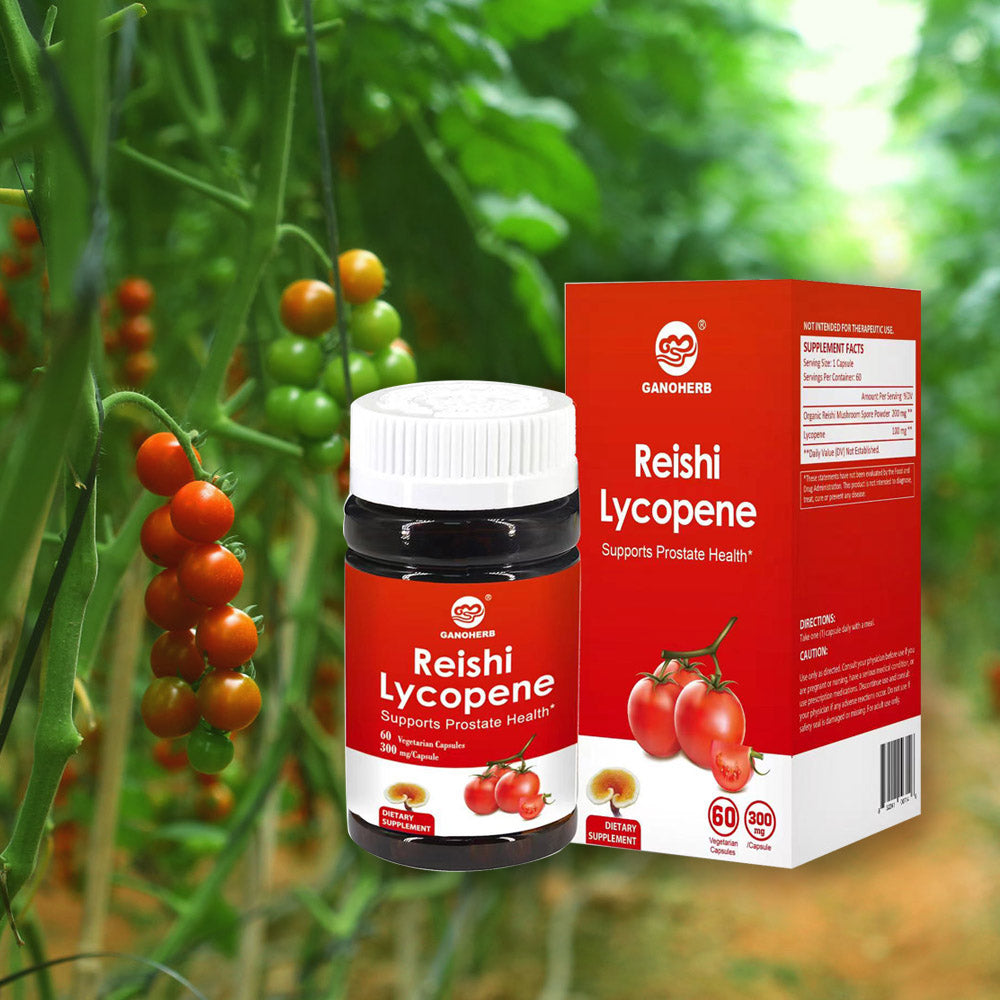Understanding Lycopene Supplement 500mg: Sources, Forms & Considerations
In the realm of dietary additions, certain compounds naturally found in vibrant fruits and vegetables garner significant attention. Among these is lycopene, a pigment celebrated for its rich red hue and presence in everyday foods. This focus often extends to concentrated forms, such as a lycopene supplement 500mg, which represents a specific approach to incorporating this compound into dietary patterns. This exploration delves into various facets surrounding the lycopene supplement 500mg, moving beyond typical associations to examine its origins, presentation, and practical aspects.

The Natural Origins vs. Concentrated Form
Lycopene is intrinsically linked to the plant kingdom. It’s the compound responsible for the deep red color in tomatoes, watermelon, pink grapefruit, guava, and papaya. The human body does not produce lycopene independently; it must be obtained through dietary sources. Consuming these foods is the primary way individuals encounter this pigment. However, dietary intake can vary considerably based on food choices, seasonal availability, and preparation methods (cooking tomatoes, for instance, can increase lycopene's availability).
A lycopene supplement 500mg offers an alternative pathway. It represents a highly concentrated source derived typically from tomato extracts or other lycopene-rich plants. The extraction and concentration process aims to deliver a standardized amount of lycopene in a single serving, far exceeding what one might readily consume through typical portions of whole foods. This concentration is the defining characteristic of this specific supplement form. Choosing a lycopene supplement 500mg is thus a decision centered on achieving a specific intake level of this compound, distinct from relying solely on dietary sources.
Exploring Common Delivery Systems: Softgels, Liquids, and Powders
Once extracted and concentrated, lycopene needs a delivery mechanism to reach the consumer. The lycopene supplement 500mg is most frequently encountered in specific formats designed for ease of use and stability:
Softgels: This is arguably the most prevalent form for a lycopene supplement 500mg. Lycopene is fat-soluble, meaning it dissolves in fats and oils. Softgels provide an ideal environment, as the lycopene extract is typically suspended in an oil base (like olive oil or soybean oil) within a gelatin or plant-based capsule. This oil matrix aids in the handling of the compound and mirrors the natural context in which lycopene is found in foods (often alongside fats). The softgel protects the sensitive compound from light and air, helping maintain its integrity.
Liquid Emulsions: Some formulations present lycopene in liquid form. These often involve creating an emulsion – a stable mixture of the oily lycopene extract with water-based components. Liquid lycopene supplement 500mg options might appeal to those who prefer not to swallow capsules or seek faster dispersion. They often require careful storage, sometimes refrigeration, to maintain stability.
Powdered Forms (Less Common for 500mg): While lycopene powder exists, it is less commonly found as a standalone lycopene supplement 500mg dose due to challenges with stability, taste, and precise dosing. Lycopene powder is highly sensitive to light and oxygen. More frequently, lycopene powder is included as an ingredient in multi-compound blends or superfood powders at lower concentrations per serving than the focused 500mg offering. Encapsulating the powder addresses stability issues but brings it back to the capsule/softgel category.
The choice between these forms often comes down to personal preference regarding swallowing ease, desired speed of incorporation, and convenience in storage and travel. The softgel remains the dominant carrier for the concentrated lycopene supplement 500mg.

The Significance of the 500mg Measurement
The 500mg designation on a lycopene supplement 500mg label requires careful interpretation. This figure almost invariably refers to the total weight of the lycopene-containing extract within the capsule or serving, not the amount of pure lycopene itself. Tomato extracts or other lycopene sources used in supplements are complex mixtures.
Extract vs. Pure Compound: A tomato extract standardized for lycopene content might contain, for example, 6% to 20% (or sometimes higher) actual lycopene by weight. This standardization should be clearly stated on the supplement facts panel. Therefore, a lycopene supplement 500mg providing a tomato extract standardized to 10% lycopene would deliver approximately 50mg of actual lycopene. The 500mg primarily indicates the quantity of the source material.
Why 500mg? This specific weight has become a common benchmark in the market. It represents a substantial quantity of the lycopene source material, allowing manufacturers to deliver a significant, standardized amount of lycopene per serving (e.g., 10mg, 15mg, 20mg, 25mg, or more) within a reasonably sized capsule. It signals a potent offering compared to lower-dose supplements or dietary intake levels. Consumers seeking a concentrated source often look for this specific lycopene supplement 500mg strength as a marker of a robust formulation.
Reading Labels is Crucial: Understanding what the 500mg represents is essential. Always look beyond the front label to the Supplement Facts panel. This panel should clearly state the amount of actual lycopene delivered per serving (e.g., Lycopene (from 500mg Tomato Extract) 25mg). The 500mg refers to the extract, while the smaller number (e.g., 25mg) indicates the lycopene content.
Key Manufacturing and Quality Factors
The journey from raw plant material to a finished lycopene supplement 500mg involves several critical steps that influence the final product's characteristics:
Source Material: The quality begins with the tomatoes or other lycopene-rich plants. Factors like cultivation practices (organic vs. conventional, soil quality), harvest time, and tomato variety (some are bred for higher lycopene content) can impact the initial lycopene concentration and purity of the extract.
Extraction Methodology: Extracting lycopene from plant material requires specific techniques. Common methods include solvent extraction (using food-grade solvents like hexane or ethanol, which are later removed) or supercritical CO2 extraction (using pressurized carbon dioxide as a solvent, considered very clean). The chosen method affects the purity of the final extract and the potential presence of residual solvents. CO2 extraction is often highlighted for its cleanliness.
Standardization: This is a vital process. Natural extracts can vary in potency. Reputable manufacturers standardize their extracts to guarantee a consistent, specified amount of lycopene in every batch of the lycopene supplement 500mg. This ensures product consistency from bottle to bottle.
Stability and Formulation: As a carotenoid, lycopene is sensitive to light, heat, and oxygen. Manufacturing processes must minimize exposure to these elements. Formulating the extract into an oil suspension within a softgel (or creating a stable emulsion for liquids) is crucial for protecting the lycopene and enhancing its handling within the body. Antioxidants like Vitamin E are sometimes added to the oil carrier to further protect the lycopene from oxidation.
Encapsulation and Packaging: The final encapsulation process (for softgels or capsules) must maintain the integrity of the oil-filled contents. Opaque bottles (often dark brown or amber glass/plastic) are essential to block light, a major degrader of lycopene. Tightly sealed containers help minimize oxygen exposure.
Third-Party Testing & Certifications: Reputable brands invest in third-party testing to verify the lycopene content matches the label claim, confirm the absence of contaminants (heavy metals, pesticides, microbes), and ensure the product is free from banned substances. Certifications like NSF International, USP (United States Pharmacopeia), or Informed-Choice provide additional layers of quality assurance for a lycopene supplement 500mg.
Observing Usage Patterns and Consumer Motivations
While avoiding discussion of specific outcomes, it's possible to observe the contexts and motivations driving interest in a lycopene supplement 500mg:
Dietary Focus: Individuals with dietary patterns low in lycopene-rich foods (tomatoes, watermelon, etc.) might incorporate a supplement to increase their intake of this specific compound as part of a broader dietary strategy.
Convenience Factor: Achieving consistently high intake levels of lycopene solely through diet requires regular consumption of significant quantities of specific fruits and vegetables. A lycopene supplement 500mg offers a concentrated and convenient alternative, bypassing the need for large daily food volumes.
Interest in Plant Compounds: There's a growing trend of consumers seeking out specific bioactive compounds found in plants. Lycopene, as a prominent carotenoid, falls into this category. Individuals interested in exploring the inclusion of diverse plant-derived compounds in their routine might be drawn to a potent lycopene supplement 500mg.
Targeted Nutritional Strategies: Some individuals follow specific nutritional approaches where optimizing the intake of certain plant pigments is a component. A lycopene supplement 500mg allows for precise and significant inclusion of this particular pigment within such frameworks.
Lifestyle Integration: The format (typically a once-daily softgel) fits easily into established supplement routines for many people, making it a simple addition.
Understanding these patterns helps contextualize the role a lycopene supplement 500mg plays in the landscape of dietary additions, driven by convenience, dietary focus, and interest in plant compounds.
The lycopene supplement 500mg represents a specific point of intersection between naturally occurring plant compounds and modern dietary practices. It signifies a concentrated source derived primarily from tomatoes, meticulously processed, standardized, and delivered most commonly in an oil-filled softgel for stability and compatibility. The 500mg label primarily denotes the weight of the lycopene-containing extract, with the actual lycopene content being a smaller, standardized fraction clearly stated on the supplement facts panel. Manufacturing quality, rigorous testing, and protective packaging are paramount for ensuring the integrity of this sensitive compound. Interest in this supplement strength stems from factors like dietary focus, the pursuit of convenience in achieving high intake levels, and a general interest in incorporating significant amounts of specific plant-derived pigments into one's routine. Understanding these aspects – from natural origins and delivery forms to manufacturing quality and usage contexts – provides a comprehensive view of what the lycopene supplement 500mg entails as a concentrated dietary offering.











